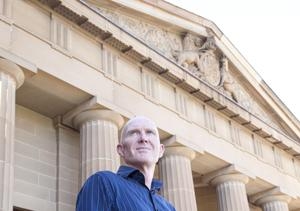Miscarriages of justice
Research led by UNSW's Gary Edmond is raising serious doubts about the reliability of forensic science in the courtroom.
Research led by UNSW's Gary Edmond is raising serious doubts about the reliability of forensic science in the courtroom.

In 2009, the National Academy of Science (NAS) in the United States concluded the “law’s greatest dilemma is its heavy reliance on forensic evidence”.
The extent of the dilemma in Australia has been highlighted by recent high-profile miscarriages of justice in cases dependent on forensice evidence, notably the Gordon Wood case and most recently the acquittal of Jeffrey Gilham.
“The simple reality is that the interpretation of forensic evidence is not always based on scientific studies to determine its validity. This is a serious problem,” the NAS report said.
Professor Gary Edmond, from UNSW's Faculty of Law, concurs.
Edmond is leading an interdisciplinary team examining how forensic science can better fulfil its promise of bringing us closer to the truth and, therefore, justice. That means understanding what goes wrong and why, from the moment an investigation is launched to a conviction in court.
“There are problems across the board,” he says.
For the full story, read the latest issue of Uniken. Read Professor Edmond's take on the Jeffery Gilham acquittal in The Sydney Morning Herald.
Media contact: Steve Offner, UNSW Media Office, 9385 1583